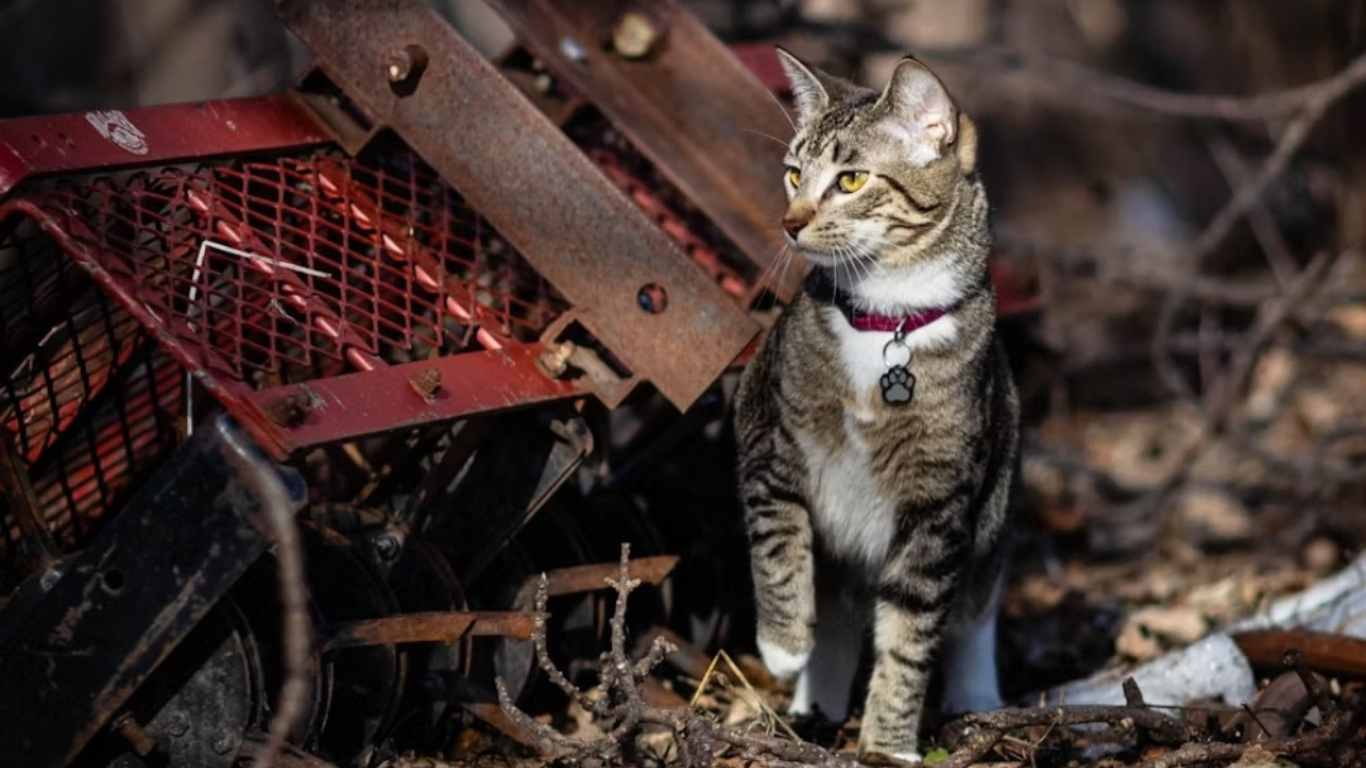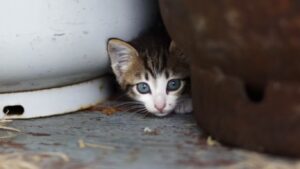In a world where cats reign supreme, their mysterious disappearances have left us puzzled.
From urban legends to real-life incidents, the unexplained vanishing act of our feline friends has captured the imaginations of cat lovers worldwide.
Delve into the depths of this mystifying phenomenon as we unravel the factors contributing to cats disappearing without a trace, shedding light on a topic that continues to baffle us all.
Factors Contributing to Cats Disappearing Without a Trace
From my experience living with cats, there are too many factors contributing to cats disappearing without a trace, however, to make it easier for you to understand, I will be discussing the most common ones.
These factors one way or the other can lead to your cat disappearing, that being said, here are some of the most common factors contributing to cats disappearing without a trace:
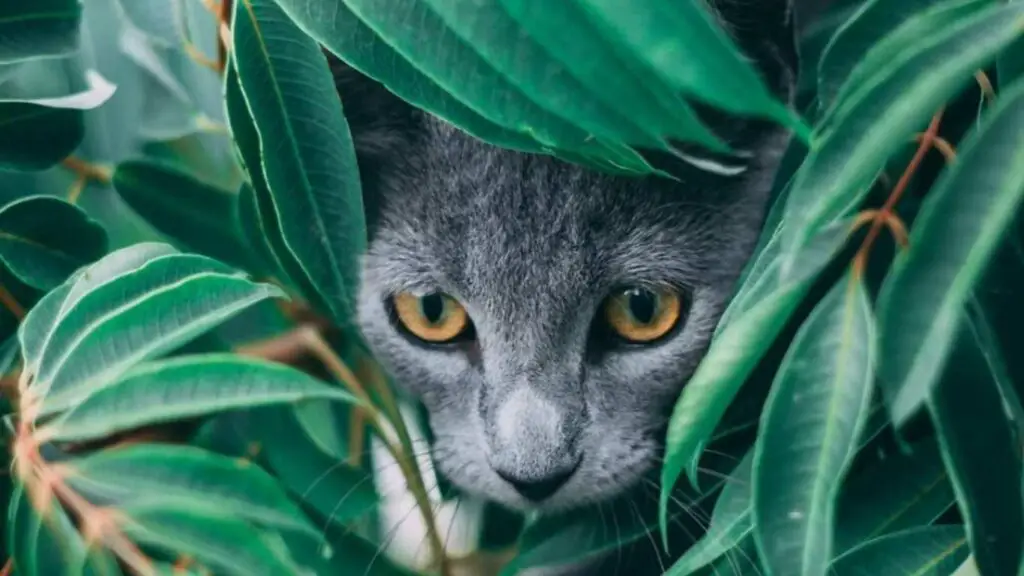
Mating Drive
Cats have a strong natural instinct for reproduction, driven by their powerful mating drive.
When this drive kicks in, cats may wander far from home in search of a mate, sometimes disappearing without a trace.
This can be a major concern for cat owners, as it can result in the loss of their beloved feline companion.
In my experience as a cat owner, I can tell you that to manage this factor, there are a few steps you can take.
One of the option I recommend is to consider spaying or neutering your cat if you can.
This can help reduce their mating instincts and decrease the likelihood of them wandering off in search of a mate.
It is also important to keep your cat indoors during mating seasons, which typically occur in the spring and summer.
By providing a safe and secure environment for your cat, you can minimize the chances of them disappearing due to their mating drive.
Human Interference
Human interference can also contribute to most cats disappearing without a trace.
Cats are curious creatures, and they may explore unfamiliar territories or follow interesting scents.
Unfortunately, this can sometimes lead them into situations where they become lost or unable to find their way back home.
As responsible cat owners, it’s crucial to minimize the risks of human interference.
Firstly, I suggest you ensure that your cat has a collar with identification tags, including your contact information.
Microchipping your cat is also highly recommended, as it provides a permanent form of identification that cannot be lost or removed.
Additionally, it is essential to keep a close eye on your cat when they are outdoors, especially in unfamiliar areas.
Regularly check for any potential hazards or dangers that could lead to your cat disappearing, such as open gates or construction sites.
New Pets or Babies
The addition of new pets or babies to a household can cause significant changes in a cat’s environment and routine.
We all know that cats are creatures of habit, and sudden disruptions can lead to stress and anxiety, which may prompt them to try and escape or hide.
My recommendation to manage this factor, it is crucial to introduce any new pets or babies to your cat gradually.
Allow them to become familiar with each other’s scents before any direct interactions.
Provide your cat with a safe and comfortable space where they can retreat to when they need some time alone.
It is also important to maintain a consistent routine and provide extra attention and affection to your cat during this transition period.
By addressing their emotional needs and ensuring a stable environment, you can reduce the chances of your cat disappearing due to the introduction of new pets or babies.
Accidents
Cats are known for their curiosity and adventurous nature, which unfortunately puts them at risk of accidents.
One factor contributing to cats disappearing without a trace is the occurrence of accidents.
These accidents can range from falls from heights, such as balconies or trees, to being hit by vehicles on busy roads.
Accidents can happen suddenly and without warning, leaving cat owners devastated and searching for answers.
In some cases, a cat may wander too far from home and find themselves in unfamiliar territory, increasing the chances of an accident.
Additionally, cats may get themselves trapped in inaccessible places or become injured while exploring hazardous areas.
To manage the risk of accidents, cat owners can take several precautions. First and foremost, it’s important to keep cats indoors or provide them with a safe and secure outdoor enclosure.
This helps minimize the chances of accidents occurring outside the controlled environment of the home.
Regular veterinary check-ups and vaccinations are also essential to ensure the cat’s overall health and well-being.
Lastly, cat-proofing the home by removing potential hazards and keeping windows and balconies secured can significantly reduce the risk of accidents.
Predators
Another factor that contributes to cats disappearing without a trace is the presence of predators.
Cats, especially those allowed outdoors, may encounter predators such as coyotes, foxes, or even larger birds of prey.
These predators see cats as potential prey and can swiftly snatch them away, leaving no trace behind.
Predators are skilled hunters and can easily outmaneuver and overpower domestic cats.
Cats, being natural explorers, may unknowingly wander into areas where predators are present.
Additionally, during nighttime or in areas with dense vegetation, cats become more vulnerable to surprise attacks by predators.
To manage the risk of predation, it’s crucial to keep cats indoors, especially during nighttime when predators are more active.
Creating a safe and secure outdoor enclosure allows cats to enjoy the outdoors while remaining protected from potential threats.
Additionally, providing cats with plenty of mental and physical stimulation indoors helps reduce their desire to venture into dangerous territories.
Getting Lost
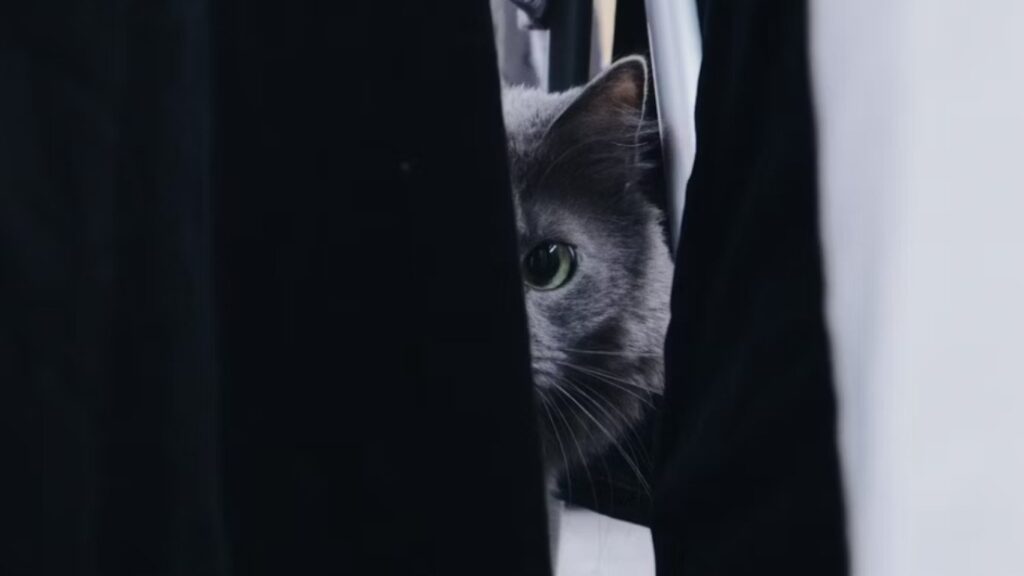
Cats have an innate sense of curiosity and can easily become disoriented or lost if they wander too far from home. This factor contributes to cats disappearing without a trace.
Whether it’s exploring nearby gardens or venturing into unfamiliar neighborhoods, cats can easily lose their way and struggle to find their way back.
Getting lost can occur due to various reasons, such as being chased away by another animal, becoming frightened by loud noises, or simply getting distracted by something interesting.
In some cases, cats may also unintentionally enter vehicles, leading them to be inadvertently transported far away from their familiar surroundings.
To manage the risk of cats getting lost, it’s important to keep them indoors or provide them with supervised outdoor time.
Microchipping and ensuring they wear collars with identification tags can also greatly increase the chances of a lost cat being reunited with its owner.
Additionally, creating a routine and familiar environment for the cat at home can help prevent them from wandering too far in the first place.
Fear or Trauma
Cats are naturally sensitive creatures, and fear or trauma can often be a significant factor contributing to their disappearance without a trace.
Various situations can trigger fear in cats, such as loud noises, unexpected visitors, or traumatic experiences like accidents or attacks on the cat.
From what I know about cats, I can tell you that when cats feel threatened or overwhelmed, their instinctual response is to seek safety by hiding or running away.
To manage this factor, it’s important to create a safe and secure environment for your cat.
Provide hiding spots like cozy beds or cat trees where your feline friend can retreat when feeling scared.
Minimize exposure to loud noises or sudden disturbances, and gradually introduce new people or experiences to prevent overwhelming them.
If your cat does go missing due to fear or trauma, try leaving out familiar scents, like their bedding or toys, as these can help them find their way back home.
Unfamiliar Surroundings or Inadvertent Trapping
Cats can easily get disoriented or lost when they find themselves in unfamiliar surroundings.
Whether they wander too far from home or accidentally get trapped in places like sheds, garages, or even cars, these situations can lead to their sudden disappearance.
Cats have an incredible sense of curiosity, and their exploratory nature can sometimes get them into unexpected predicaments.
To manage this factor, it’s crucial to take preventive measures. Keep your cat indoors or supervise them closely when they venture outside.
Ensure that windows and doors are securely closed to prevent accidental escapes.
If you’re moving to a new location, take extra precautions to keep your cat confined indoors until they become familiar with their new surroundings.
Additionally, provide your cat with identification, such as a collar with tags or a microchip, to increase the chances of being reunited if they do go missing.
Abuse and Neglect
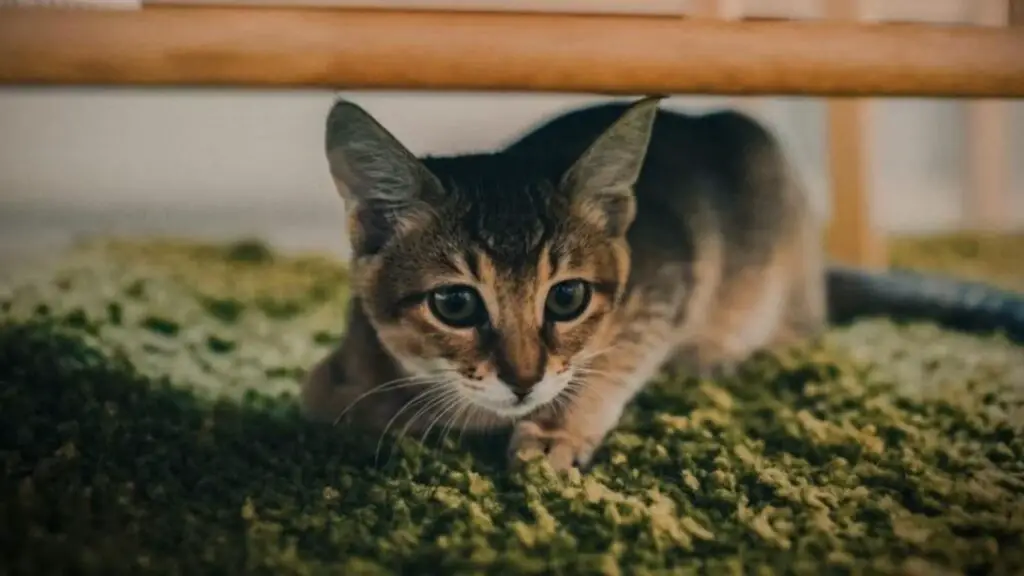
Sadly, abuse and neglect can also contribute to cats disappearing without a trace, I know these because my neighbor’s cat ran away from home back then.
Cats that experience mistreatment or neglect may instinctively try to escape their abusive environment, seeking safety elsewhere.
In some cases, they may be intentionally abandoned or left behind when their owners move away.
These acts of cruelty can result in cats becoming strays or being unable to find their way back home.
To manage this factor, it’s crucial to promote responsible pet ownership and educate others about the importance of treating animals with kindness and compassion.
If you suspect or witness any signs of abuse or neglect, report it to the appropriate authorities or local animal welfare organizations.
Providing resources and support for struggling pet owners can also help prevent cats from being abandoned or mistreated.
So there you have it…
I have written a detailed article about how to prevent your cat from mysteriously disappearing, you can check it out here.
Conclusion
While the enigma of cats disappearing without a trace may persist, we’ve uncovered some potential factors that shed light on this perplexing phenomenon. From territorial conflicts to the call of the wild, understanding these intricacies can help us better protect our beloved feline companions. So, let’s remain vigilant, spread awareness, and work together to ensure our furry friends roam safely in a world where their mysterious vanishing act becomes nothing more than a distant memory.
Here’s a guide to what you can do if your cat goes missing.
Questions
Are there any specific breeds of cats that are more prone to disappearing without a trace?
While every cat is unique, certain outdoor and adventurous breeds like the Bengal or Maine Coon may be more inclined to explore beyond their territories, increasing their chances of disappearing without a trace.
Can cats vanish due to supernatural or paranormal reasons?
As much as we love a good mystery, there is no scientific evidence to support the notion of cats disappearing due to supernatural or paranormal causes. The most likely explanations lie in factors such as predatory encounters or unintentional human intervention.
How can I minimize the risk of my cat disappearing without a trace?
Taking precautions such as providing a safe and secure outdoor environment, ensuring proper identification with microchipping or collars, and regular veterinary check-ups can significantly reduce the risk of your cat vanishing mysteriously.
What should I do if my cat goes missing?
Acting swiftly is crucial when your cat disappears. Start by searching your home, alerting neighbors, and posting on local lost-and-found pet platforms. Additionally, contact local shelters and provide them with a detailed description of your cat to increase the chances of a safe return.

